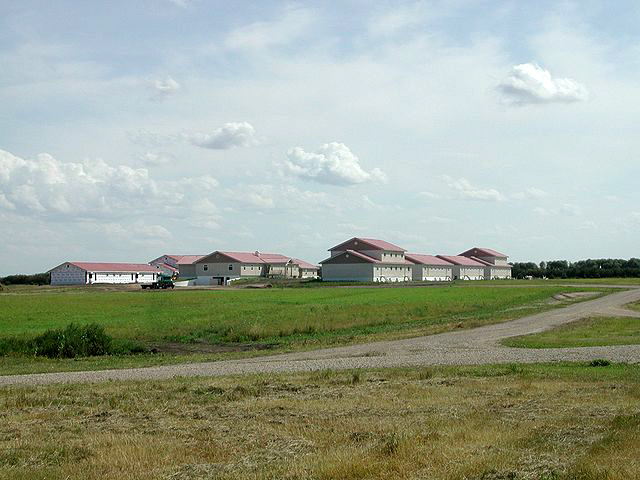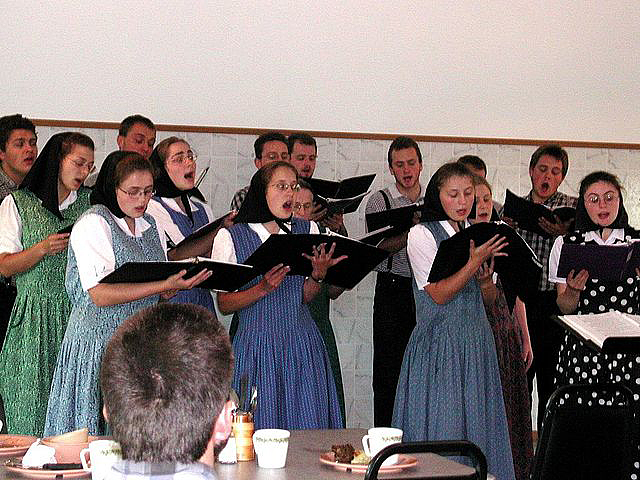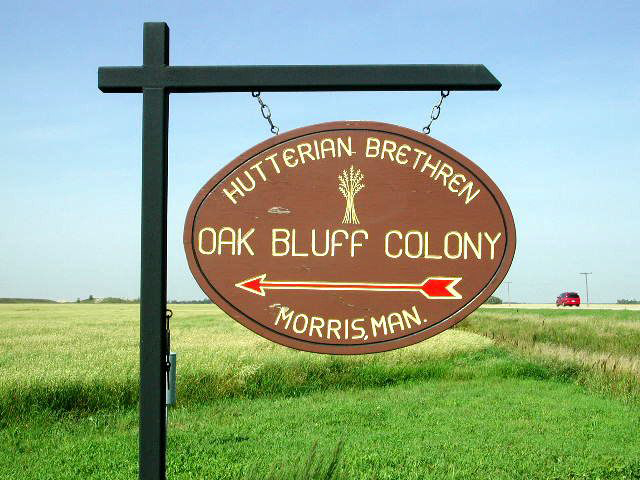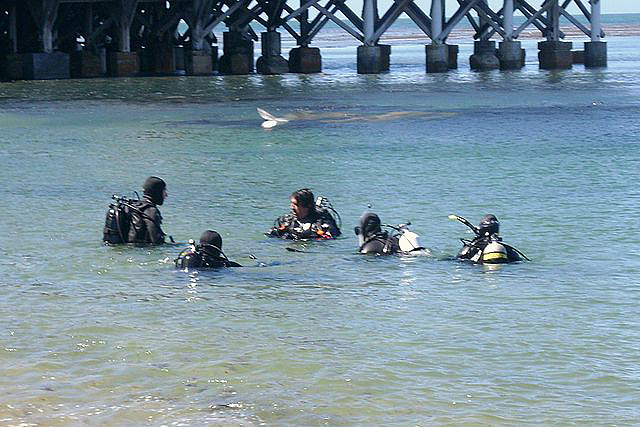When 17-year old Travis Bauman disappeared in turbulent waters below a diversion dam in southern Manitoba two weeks ago, it took a team of divers from a Hutterite colony to find his body. The tragedy occurred on July13th and for two days afterwards, divers from the Canadian national police force, the RCMP, searched for the boy. When they gave up on Friday the 15th, the Bauman family contacted a team of divers from a Manitoba Hutterite colony. In a couple hours, they succeeded.

The tragedy occurred just outside the small city of Winkler, about 60 miles southwest of Winnipeg. The successful team of experienced divers came from the Oak Bluff Hutterite Colony, which is about 40 miles south of the provincial capital. The CBC featured the story of the unusual group of Hutterites on Tuesday last week.
The group was founded by Manuel Maendel, a life-long member of the Oak Bluff colony. He said he grew up dreaming of becoming a scuba diver. Then in 1998, when he was 20, he watched a team of divers search the water of a gravel pit on the colony after a cousin of his disappeared. The members of the colony had already searched everywhere else. Some years after that, he translated his dream into a real activity.
He got training as a diver, earned an advanced diving certificate, and started promoting his hobby to others in the colony. He recruited Paul Maendel, his brother, and five others; the seven men formed a group called the Hutterian Emergency Aquatic Response Team, or HEART. In addition to the seven trained divers, the group from Oak Bluff includes three other people who provide assistance from the shore.

In July 2012 they were involved in the search for a missing girl from Poplar Point, another Hutterite colony in Manitoba. A different search team found her body in the Assiniboine River. The HEART team only participates in searches for people who are presumed to have drowned if requested by their families. They were involved in their third search near Winkler two weeks ago when, for the first time, they happened to find the body of the missing person.
Paul Maendel was one of the two team members who recovered the body. “When somebody has been in the water for a couple of days, you know there’s not going to be a happy ending. But there is a peaceful ending,” he told the CBC. But he felt that finding the boy’s body helped the family close the tragedy. “It brings a resolution,” he said. “It is a lot better than knowing that somebody is missing.” He too felt helpless at the tragedy at their own colony 18 years ago when their cousin drowned.
The Hutterite diving team is quite careful to not exceed their capabilities, and they always try to stay safe. They emphasized to the reporter that they do not want to be seen as heroes. They explained that they are infused with a sense of the importance of helping others with the skills that they have acquired. The Oak Bluff colony does provide some financial support for equipment and training for the diving team.

And the team views their efforts from the perspective of their faith, a salient characteristic of Hutterites in general. “I believe that we were able to recover that person because of the prayers of the family and the colony that was there,” Paul Maendel told the CBC reporter. “They were singing on shore. It really inspired us to keep going.”
A report about the Oak Bluff team published by a local news service in southern Manitoba on Wednesday last week added further details to the story. When the team was asked to participate in the search on Friday, they quickly agreed to try and help. By the time they arrived at the scene near Winkler Friday evening, they were not even aware that the RCMP had ceased searching for the boy. They just offered their assistance.

They got into their scuba diving suits and for 90 minutes they worked up toward the dam, following a prescribed search pattern. They didn’t find anything and decided, as they got nearer, that the water conditions were too dangerous to proceed any closer. So they turned around and started searching back down the canal, using a formation like a comb. They had no visibility, but one of the team members found the body. It was a relief to everyone—the search was over.
The devotion of the people living in the Oak Bluff colony is comparable to that of other Hutterites. Manuel Maendel explained his feelings in terms similar to the ones his brother had used. He noted how the community was there on shore supporting them with their prayers. He said that the team appreciated those prayers. “We feel that God led us to be successful in locating Travis,” he said.
He also said that the team was praying as they were searching. They feel close to God when they are in the water. He added that he is amazed at the sense of peace that overwhelms the team when they are under water trying to help in a search.

But he clearly recognizes that the team could use support beyond the resources of the Oak Bluff colony. HEART has a practical streak. The group has set up a GoFundMe crowdfunding page for those who might like to assist them in purchasing additional, newer equipment and in getting more training. Paul Maendel explains on the GoFundMe page the specific kinds of better equipment that would be helpful, the training they need, and how it will help their work.